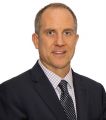
The 11th Annual Industry Conference will be held at the University of Tennessee, Knoxville’s Student Center, and Min H. Kao Engineering Building on April 18-19, 2023. Accommodations will be at the Cumberland House (Hilton) Hotel next to the university campus.
HOTEL REGISTRATION
CUMBERLAND HOUSE HOTEL
LOCATIONS
Invited Speaker Presentations and Research Thrust Overviews will all be held in Room 169 in the University Student Center on April 18 & 19. Lab Tours and Poster Sessions will be at the Min H. Kao Building on the University of Tennessee campus on the same days. Lunch will be provided in Room 169. The Industry & Faculty Dinner Meeting will be in the Cumberland House dining room on the night of April 18. (A more detailed schedule will be sent to attendees a few weeks before the conference begins)
PARKING
Hotel garage parking is available for a charge of $20 per day and will be available with your hotel registration. The hotel is within walking distance of the University campus. CURENT will provide van shuttle services for any attendees who require it.
TRANSPORTATION
Recommended service:
- Uber
- LYFT
- Knoxville World Class Taxi (865-691-1900)
EVENT CONTACT
Please contact Michael Rogers at 865-661-2037 or MRoger69@utk.edu if any issues arise.
Keynote Speaker Presentations
Tuesday, April 18, 2023
13:30 - 14:00 Ben Kroposki (NREL)
 Title: Grid-forming Inverters and the UNIFI Consortium
Title: Grid-forming Inverters and the UNIFI Consortium
Abstract: As the prices of wind, solar, and batteries continue to decline, these technologies will start to make up increasingly larger parts of the clean energy portfolio. All of these technologies are based on inverters to interconnect to the power grid instead of synchronous generators used in conventional power plants. At all timescales, it is important to maintain stable and reliable grid operations. With the increasing use of inverter-based resources and reduction in the use of synchronous generation there are a variety of technical challenge that must be overcome. These include: operational stability, protection system coordination, blackstart capability, and power system harmonics and oscillations. This presentation will discuss how to integrate large amounts of inverter-based resources into power grids, the need for grid forming inverters, and the work of the new UNIFI Consortium to address these issues.
14:00 - 14:30 Daniel Brooks (EPRI)
 Title: Grid Capabilities and Technologies to Enable a Net-Zero Economy by Mid-Century
Title: Grid Capabilities and Technologies to Enable a Net-Zero Economy by Mid-Century
Abstract: In November 2021, the Biden administration reaffirmed its goal for the U.S. to reach net-zero economy-wide GHG emissions by 2050 with nearer-term objectives of reaching 50% reduction by 2030. EPRI recently published analyses of technology deployments to achieve the 50% by 2030 and 2050 net-zero target. EPRI will present selected results from these EPRI decarbonization analyses to provide context for the significant changes that will be required for the electric sector.
14:30 - 15:00 Jeffrey Csank (NASA)
 Title: NASA Lunar Surface Operations and Power Grid
Title: NASA Lunar Surface Operations and Power Grid
Abstract: The National Aeronautics and Space Administration (NASA) Artemis Program is developing, testing, and demonstrating new capabilities and technologies required to support a sustainable human presence on the lunar surface and a longer-term vision of sending astronauts to Mars. Artemis lunar surface operations will begin with robotically exploring the lunar south polar regions for locations suitable for harvesting lunar surface resources. Over time activities on the lunar surface will expand beyond robotic operations to human lunar surface operations with the delivery of a lunar habitat and in[1]situ resource utilization (ISRU) assets increasing the need for highly reliable and available electrical power. As operations move beyond the Artemis technology demonstrations and exploration activities towards full commercial lunar surface activities, the ability to expand the original envisioned Artemis power system and repurpose power system components to support commercial activities will be crucial. One technology that will be necessary to support commercial lunar operations is a power grid. A lunar surface power grid would offer the ability to integrate various power sources to maximize power availability, including fission surface power (nuclear), solar arrays, batteries, and regenerative fuel cells. Newly designed terrestrial microgrids are flexible and can be designed to allow for islanded operation, where power is utilized near the loads to minimize power distribution losses or in a power sharing mode where power is transmitted longer distances. This capability is crucial during failures where overall power availability is reduced, and load demand exceeds generation/storage capability. These terrestrial microgrids will also allow for the power system to grow and evolve over time, meeting the need to expand beyond initial lunar surface activities. This presentation will discuss the NASA Artemis plans, potential power system architectures, and power distribution options that will enable growth from initial technology demonstrations towards a lunar economy with a lunar surface power grid that offers many of the advantages of terrestrial microgrids.
Wednesday, April 19, 2023
9:30 - 10:00 Wolfgang Demmelbauer-Ebner (Volkswagen)
 Title: Electrification in America - Volkswagen’s journey to zero emissions
Title: Electrification in America - Volkswagen’s journey to zero emissions
Abstract: As a brand filled with traditions and icons such as the memorable bug and our iconic VW bus, the latest addition to the Volkswagen family in the US – the ID.4 – is purely electric. Assembled in Chattanooga, TN, the ID.4 symbolizes another milestone in Volkswagen’s ambitious electrification strategy. The Volkswagen Group plans to roll out the broadest electrified portfolio in the North American market and we will further increase our footprint in the US by building up dedicated EV capabilities in engineering, research and development, assembly, components production, and strong supplier partnerships. This presentation will present Volkswagen’s journey in the US, the special framework of the US automotive market and our strategic goals for our customers and brand.
10:00- 10:30 Juan Castaneda (Southern California Edison)
 Title: Pathway 2045-SCE Road Map to Full Decarbonization
Title: Pathway 2045-SCE Road Map to Full Decarbonization
Abstract: As energy supply, customers and climate evolve, our grid will face increasing and more complex challenges. New and emerging technologies will enable foundational and situational capabilities, building on existing assets. Edison's Reimagining The Grid vision identifies the changes needed to decarbonize electricity, support electrification and adapt to climate change. The reimagined grid will be redesigned with region-specific architectures that will bundle new technologies together. This presentation of Pathway 2045 outlines SCE's vision to achieve a carbon neutral future.

